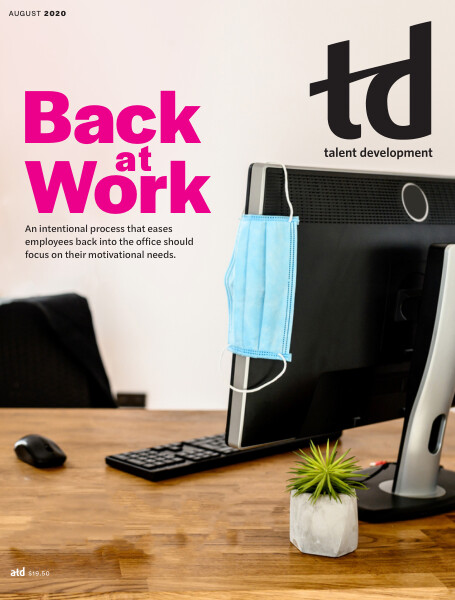TD Magazine Article
UK Companies Are Coming Up Short in Confronting Skills Deficits
A recent report shows organizations recognize the need to address skills gaps but lack follow-through.
Fri Jul 31 2020

For a better understanding of L&D trends and practices in the UK, CIPD in partnership with Accenture produced the Learning and Skills at Work 2020 report. More than 1,200 professionals responded to the survey to unveil trends in the industry, and the report offers recommendations to ensure organizations are fit for the future.
According to the report, UK organizations recognize that employees have people development and skills needs, but their investment and prioritization of those needs is falling short. For example, survey respondents noted improving line managers' people management skills as a top need. However, the report shows that only 59 percent of companies are providing line managers with the training they need to fulfill their role effectively.
When it comes to employee readiness in the age of automation, the report notes "developing technical fluency will be important as will ‘human,' ‘soft' skills development." Respondents said skills of greatest need to employers in an automated era include technical, communication, teamworking, resilience and learning, and planning and organization.
Yet, only 4 percent of organizations identify reskilling employees affected by automation as a top priority; 8 percent pinpointed soft skills development, and 3 percent identified risk reduction.
For those companies that do identify skills gaps, two-thirds believe they can effectively address them. Citing Dave Ulrich's build, buy, borrow resourcing approach, the report reveals that most organizations—67 percent—opt to build or develop skills internally. One-third buy—that is, recruit outside the company—while 14 percent borrow, or recruit from a contingent labor supply. However, researchers are observing a fourth option: bot—when the company opts to automate tasks or roles affected by the skills gaps.
Researchers also examined how the learning function is evolving to meet companies' learning needs. They advise: "For learning to support performance and productivity, it must be closely aligned with the business." That recommendation suggests companies reconsider learning professionals' structural position.
Making that decision may be contingent on various factors, such as business size and type. According to the report, 45 percent of businesses house the learning function in the HR team, while some 41 percent say their L&D functions are completely separate from HR. Those figures are representative of an increasing shift to position the L&D function outside of HR and closer to operations.
The report found that closely aligning the L&D function to operations has benefits in diagnosing performance needs, engaging managers in the design and delivery process, and facilitating learning solutions in the flow of work.
Learning is an essential part of any company's future, notes Andy Young, managing director of talent and organization at Accenture. The report encourages more diversity and agility for L&D professionals and advises companies to push L&D to become more business focused and able to identify how to drive organizational productivity and performance.

